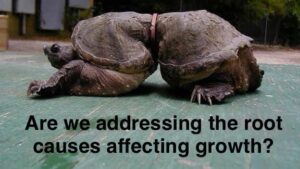Form Affects Function and Function Affects Form By: Dr. Nishita Ondhia
Epigenetics, an emerging area of scientific research, sheds light on how one’s behaviour and environment can cause changes that affect the way one’s genes express. These changes do not change your DNA and can be reversible if diagnosed early. If the changes are not detected early, they can unfortunately affect the way your body reads a DNA sequence thus affects form (ie. how you grow) and function.
The most overlooked concept of Epigenetics is mouth breathing. James Nestor talks about this in his book, “Breath”. Epigenetics with respect to mouth breathing (lack of nasal breathing) has dire consequences on one’s overall health and wellness from infancy to adulthood. If not diagnosed and corrected early, this epidemic is currently seen as small jaws, unideal craniofacial growth, disrupted swallowing patterns and moderate to severe dental crowding. There is a deficiency between the space needed for the teeth needing to come out and the amount of bone available to grow properly. If left untreated, this is currently our epidemic of sleep apnea. In effect, we are not growing the way our bodies want to grow.

Within a multidisciplinary model, early interventional orthodontics is an excellent treatment model used to reverse some of the epigenetic effects of mouth breathing. Waiting until all the adult teeth erupt is too late to correct jaw and skeletal relationships that will promote better overall lifelong health and wellness.
Diagnose early, if needed, expand the dental arches and implement myofunctional therapy.
This concept is beautifully discussed by Dr. Shereen Lim in her book, Breathe, Sleep, Thrive.
-Dr. Nishita Ondhia